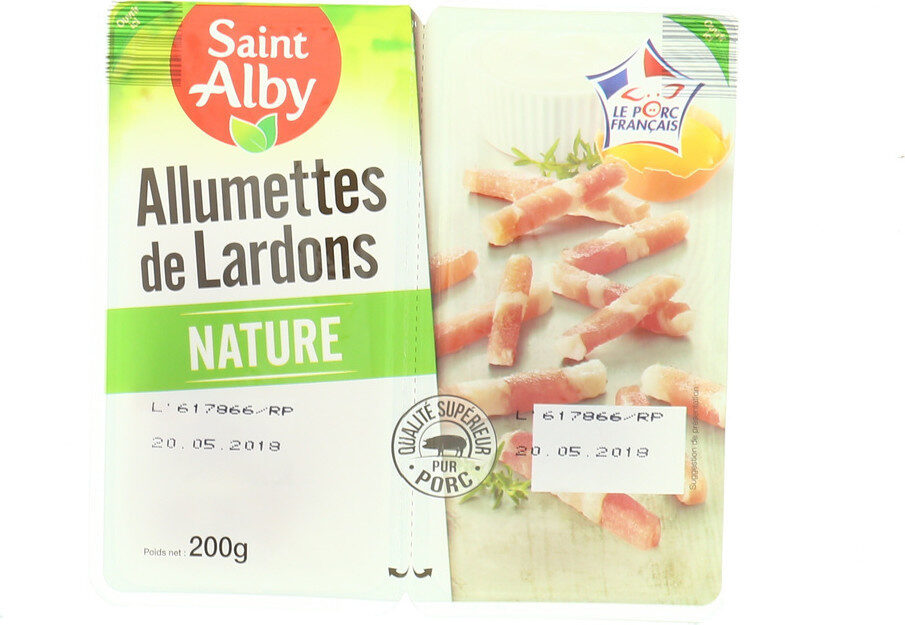Allumettes de lardons nature - Saint Alby - 100 g
Ambiguous barcode: This product has a Restricted Circulation Number barcode for products within a company. This means that different producers and stores can use the same barcode for different products.
×
This product page is not complete. You can help to complete it by editing it and adding more data from the photos we have, or by taking more photos using the app for Android or iPhone/iPad. Thank you!
×
Barcode: 20198411
Quantity: 100 g
Packaging: Plastic, Tray, fr:Lot de 2
Brands: Saint Alby
Categories: fr:Charcuterie Libre Service, fr:Lardons allumettes nature
Labels, certifications, awards: Nutriscore, Nutriscore Grade E, Superior quality, fr:Pur porc qualité supérieur
Origin of ingredients: fr:FR 44 180 004 CE, fr:Saint-Mars-La-Jaille
Manufacturing or processing places: AUBRET BP 12 FR 44540 SAINT MARS LA JAILLE
Traceability code: EMB 44180 - Saint-Mars-la-Jaille (Loire-Atlantique, France), 20198411, FR 44.180.004 CE - Saint-Mars-la-Jaille (Loire-Atlantique, France)
Stores: Lidl, Lidl 42 Loire Saint Etienne
Countries where sold: France
Matching with your preferences
Environment
Packaging
Transportation
Report a problem
Data sources
Product added on by kamounia
Last edit of product page on by inf.
Product page also edited by date-limite-app, kiliweb, musarana, openfoodfacts-contributors, packbot, roboto-app, sebleouf, yuka.SGJ3SlRMb2ludDBsdE5zTzhDdm5wdDhxeW9lQUEyK3dJc2s3SUE9PQ, yuka.UnJJZVBKOC9vdE1LblBJVCtoM2IzTmhaN1lDMllsK2VETTRTSVE9PQ, yuka.WjZrc0F2d3V2YU1oeHNkazJCM0hxL2h4ekxieFZHQ0llc1pOSUE9PQ, yuka.ZUlVNk5mVWcvY1FFbFBFRDlRenE1NDR1bHA2amVVQ1VFODhWSVE9PQ, yuka.Zm9BckQ2MWJwdWNvZy9RbTlTdis5b05ReFphM1UyS3JjdVZBSUE9PQ, yuka.sY2b0xO6T85zoF3NwEKvlnRuforMgTbdHCbTiUi2ydu_P5juU41W74_laqo.











